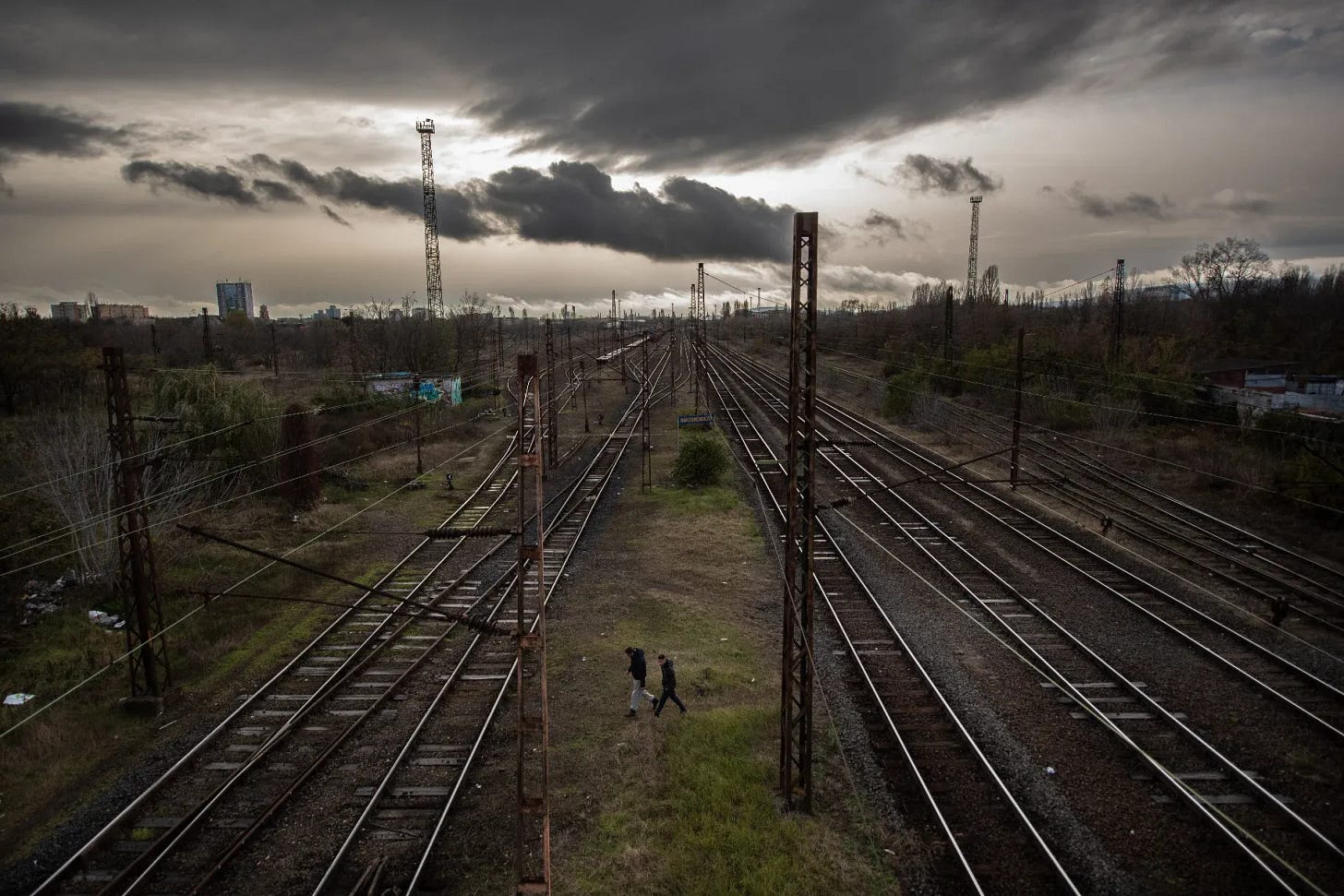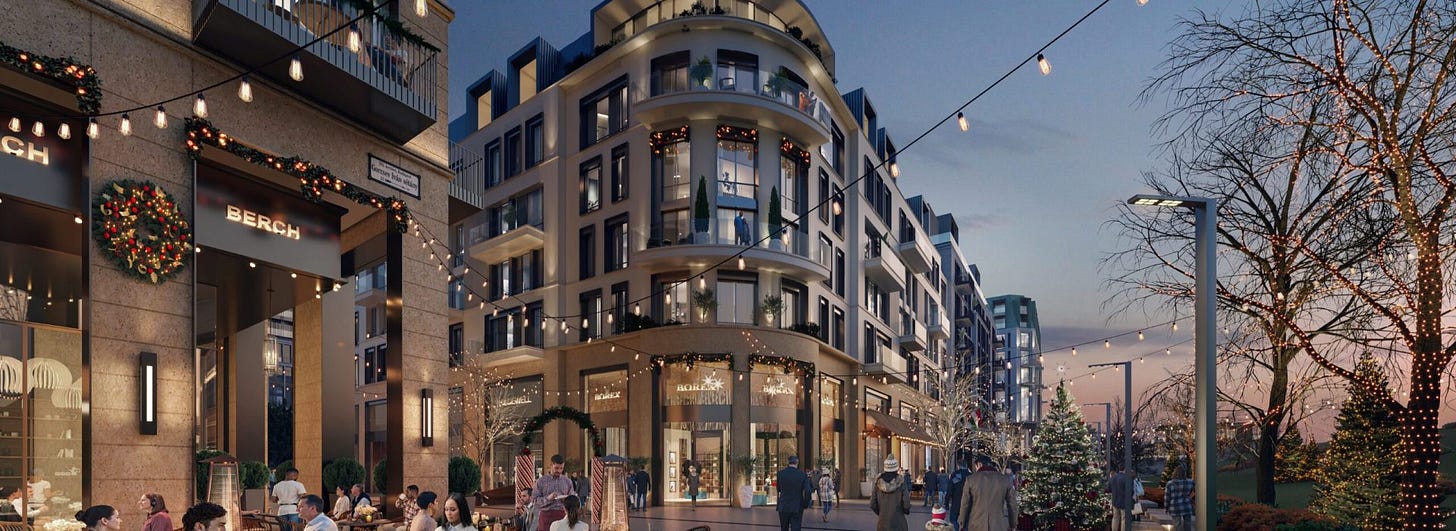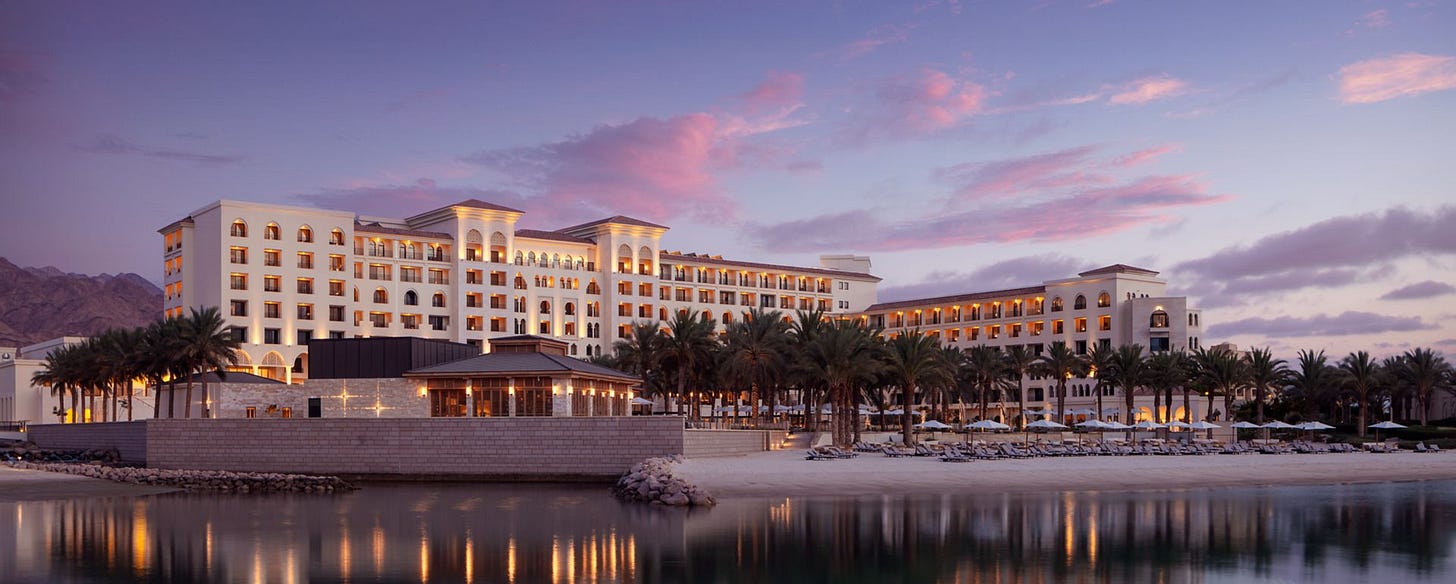Is Trump Tower coming to Budapest?
Debates over an urban development project in Budapest now involve the United Arab Emirates, Jared Kushner, and the future of global authoritarianism.
Edit: Shortly after publication, a minister in the Hungarian government made public statements that changed some of the statements reported in this article. A clarifying addition is added in italics at the appropriate point. The question posed in the title now seems unlikely.
Mini-Dubai
I sat in a pastry shop last weekend, reading over a cappuccino and a slice of Hungarian layer cake. Another customer walked in, and before long, loud voices filtered into my hearing. “It’s business, just business.” The pastry shop sits next to a mostly disused railyard just outside of central Budapest, called Rákosrendező. In recent weeks, the Hungarian government announced the sale 100 hectares of land here to an Emirati property developer. Their plans for a “Grand Budapest” development, nicknamed “mini-Dubai” by the local press, have ignited a fierce debate.
The two key figures at odds in the debate are prime minister Viktor Orbán, and Budapest mayor Gergely Karácsony. Orbán calls for the development to be a statement piece:
“Don’t start about it being ‘mini.’ If we want something, it will be the maximum in size and quality.”
His maxi-Dubai entails shock and awe, and includes a tower which, according to the contract signed in January for the land purchase, must be between 250 and 500 meters tall (820 to 1,640 feet). The Empire State Building, for reference, stands at 380 meters, or 1,250 feet.
Mayor Karácsony on the other hand, along with the Budapest city council, opposes the project. The council voted 23-10 last week to exercise the capital’s “right of first purchase” to buy the land and prevent the development. The mayor argues that Budapest should not ruin its historical skyline, should not encourage millions more badly-behaved tourists, and that the 123 million euro price for the land, agreed upon without any public discussion, reeks of corruption with Arab oligarchs. However, the decision by the capital city to exercise the “right of first purchase” will now likely go to the Hungarian courts, institutions fully compromised by Orbán’s party.
Edit: As of Saturday, February 8th, at least one minister in the Hungarian government has publicly indicated that the Budapest mayor and city council’s decision to exercise the “right of first purchase” will be respected. The minister spoke disdainfully of the decision, but did not indicate plans to challenge it in the courts as was previously suspected.


Eagle Hills Properties
Likely, the Emirati developer will soon be able to begin constructing their mini-Dubai in Budapest. But who is this developer, and what can Budapest expect?
Eagle Hills Properties is a subsidiary of the Dubai-based development firm founded by billionaire Mohamed Alabbar. Under Alabbar, that firm built the Burj Khalifa, the tallest skyscraper in the world, as well as Dubai Mall and many other large-scale developments in the Emirates.
The Eagle Hills subsidiary focuses primarily on projects outside of Dubai. The majority are in the Middle East and North Africa, but several are also located in sub-Saharan Africa and in Eastern Europe. Nearly all are large-scale and self-contained, gated resorts facing one sea or another with 5-star hotels, luxury apartments or villas, and entertainment venues.
In Jordan, Eagle Hills has completed development projects in both the capital, Amman, and the Red Sea coastal city of Aqaba. In Amman, the company constructed a 37-story luxury tower, mostly office, retail, and hotel space, with some luxury apartments on the upper six floors. The building, topped with a helicopter pad, is now the third-tallest in Jordan, and along with the neighboring Amman Rotana tower transformed the city’s skyline. In Aqaba, Eagle Hills likewise invested an unknown amount in the development of a 634,000 square meter resort complex with a water park and no fewer than four hotels, along with luxury villas in two gated communities. Aqaba, with a population of under 200,000, has become even more of a tourist town, with over 2 million visitors annually.


In the Moroccan capital of Rabat, Eagle Hills is likewise responsible for a high-end development called Fairmont La Marina. Again, the complex boasts a waterside hotel offering yacht tours, as well as 79 luxury residences.
In Muscat, capital of the Sultanate of Oman, Eagle Hills built another 5-star hotel, the Mandarin Oriental. To this project, the developer added a similar “Residences” concept for full-service luxury apartments. Meanwhile, on the other side of the Gulf in Bahrain, a similar concept informed the design of Marassi Al Bahrain; 6,600 apartments, a quarter of a million square meters of retail space, two hotels, and a central park.
Outside the Middle East, Eagle Hills is working on other projects in the same model. In Addis Ababa, plans are completed and construction has begun for a 100 acre development including yet another luxury hotel and shopping mall surrounded by luxury apartments.

All this is to say that the form Grand Budapest will take is not much of a question. Eagle Hills builds exactly one type of development. That development is a mix of luxury hotels, luxury apartments, and luxury entertainment, either fully gated or privately secured to keep out the commoners. Prices for the hotels start from several hundred dollars nightly, and prices for apartments are not publicly available. Not one of the company’s projects makes even a mention of affordable housing, nor of public transportation connections. In a statement sent to me after a request for comment, the developer focused on GDP growth and revenue from the project, all of which we can presume will go to Orbán and his cronies. Is any of that what everyday Hungarians need?
Trump Tower
Now, the really critical question. Is this “just business”? Is this normal Orbán-style corruption, a kickback or a vacation somewhere traded for the low asking price, or is there something deeper at play?
Investigative journalists from VSquare last week published a claim, as yet attributed only to anonymous sources within the Hungarian government, that the Rákosrendező project is actually set to be a gift for Donald Trump. The 500-meter tower could be the newest Trump tower.
This is a very real possibility. One last Eagle Hills development which I have not yet discussed is in Belgrade, Serbia. There, an older waterfront complex built by Eagle Hills has been described as a joke; it entailed the clearing away of Roma families for a shopping mall whose products nobody has the money to purchase. But the Belgrade Waterfront will soon have a partner in town, this time with joint funding.
In January, Eagle Hills and Jared Kushner’s company, Affinity Partners, announced a new Belgrade tower, to be constructed with Trump branding in the same mixed luxury-hotel-entertainment model. Already, the project faces criticism from multiple fronts. First, many Serbs are angry that the tower will be built on top of an informal memorial to the 1999 NATO bombing. Second, left-leaning media outlets have expressed continuing concern over the ethics of Trump and his family profiting personally from business deals secured through foreign leaders.
Will the Rákosrendező mini-Dubai turn out to be a new Trump Tower? With its prominent and contractually guaranteed tallest tower in the region, constructed by a business partner of Jared Kushner with the implementation help of the new American administration’s only real ally in the European Union, the project certainly seems to be must more than “just business.”
Implications
The implications of such a project are numerous.
First, there is the urban scale. This will be the largest single property development in Budapest ever, over 12 billion euros. It will contain the tallest building in Hungary, likely doubling the current tallest structure. For residents in the adjacent sleepy neighborhood, mostly socialist-era apartment buildings filled with families and pensioners, the project would be a complete upheaval of the urban fabric. I have a hard time imagining that the pastry shop would survive. Moreover, as the mayor put it, this is perhaps the most socially invaluable piece of land in Europe, immediately next to a capital center city and intimately connected to the public transportation network.
Second, the national scale. After city council voted against the project, the Orbán government seems to be going ahead anyways. It is a direct and significant imposition of the autocratic Fidesz government on the urban development of the city of Budapest, which overall does not support the current regime.
Third, the international scale. If the reports of a Trump Tower deal are true, this could represent not just a new deal for Hungary, but a new recognition from leaders worldwide of how to get things with Trump. What will Hungary receive in exchange for the gift of a shiny new Trump Tower in the heart of Budapest? Likewise, what are the Emiratis, closely tied to both the Israeli assault on Gaza and the anti-government Rapid Support Forces in Sudan, giving or getting for the privilege of their participation?
In fact, one could talk about a new mode of rule for global authoritarians. Alongside military might and trade deals, we may see a world in which the ability to command unruly urban space is a negotiating chip. As countries move in the directions of both authoritarianism and oligarchy, from the United States, to Hungary, to Serbia, to the UAE, one of the key battlegrounds is the city. Business is business, but business is also urban planning and international politics.






